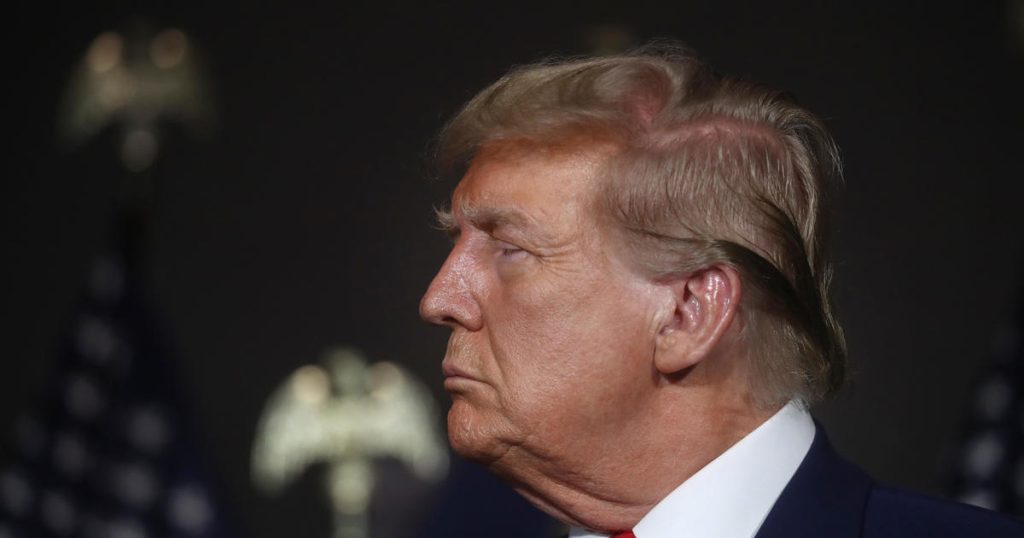A group of House Republicans proposed renaming Washington Dulles International Airport in Virginia after former President Donald Trump. In response, some Democratic colleagues introduced their own bill that would bestow his name on a federal prison. The two-page bill would rename the Miami Federal Correctional Institution in Florida to be the “Donald J. Trump Federal Correctional Institution.” This bill, like the Republican one renaming Dulles to the “Donald J. Trump International Airport,” is not expected to progress further. Representative Gerry Connolly introduced the measure with Representatives Jared Moskowitz and John Garamendi, stating that renaming a federal prison would be a more fitting option for Trump.
The Democratic bill aimed to mock Trump, referencing the numerous state and federal charges he is facing, including alleged mishandling of classified documents in Florida after leaving the White House. Trump has denied any wrongdoing and pleaded not guilty to the charges against him. Representative Garamendi suggested the name change as a tribute to Trump, proposing naming the prison closest to his Mar-a-Lago estate after him. The Miami Federal Correctional Institution is also notable for housing Peter Navarro, a former White House trade adviser, who is serving a prison sentence for defying a congressional subpoena related to the investigation into the January 6, 2021, attack on the U.S. Capitol.
The introduction of the bill to rename a federal prison after Donald Trump serves as a satirical response to the Republican proposal to rename Dulles airport in his honor. Representative Connolly expressed a desire for their Republican colleagues to join them in bestowing Trump with the only honor they believe he deserves. The bill highlights the partisan divide and differing views on Trump within Congress, with Democrats using the renaming proposal to criticize Trump’s legal troubles and conduct during and after his presidency. The irony of naming a federal prison after a former president facing legal challenges adds a layer of political commentary to the issue.
The proposed renaming of the Miami Federal Correctional Institution to the “Donald J. Trump Federal Correctional Institution” is seen as a provocative gesture by the Democratic lawmakers involved. By choosing a location close to Trump’s Mar-a-Lago property and referencing the criminal charges he is facing, they aim to make a statement about Trump’s character and actions. The bill is unlikely to progress beyond being introduced, but its symbolic significance in highlighting the contentious legacy of the Trump presidency and the ongoing legal battles he faces is notable. The Democrats’ response underscores the deeply polarizing nature of Trump’s presidency and the political divisions he continues to elicit.
The introduction of the bill reflects the ongoing political tensions and ideological divisions within Congress surrounding the legacy of Donald Trump. By proposing to rename a federal prison after Trump, the Democratic lawmakers involved are engaging in a form of political satire and commentary on his legal troubles. The bill serves as a reminder of the controversies and conflicts that defined the Trump presidency and continue to shape the political landscape in the United States. While the renaming proposal is unlikely to be enacted, it adds to the broader discourse on the impact of Trump’s presidency and the contentious issues that continue to divide the country.
The renaming proposal for the Miami Federal Correctional Institution as the “Donald J. Trump Federal Correctional Institution” is a symbolic gesture that reflects the deep divisions and animosities that exist within American politics. By suggesting this name change, the Democratic lawmakers involved are making a pointed statement about their view of Trump and his alleged misconduct. The bill highlights the ongoing debates and controversies surrounding Trump’s presidency, as well as the broader themes of justice, accountability, and power in American democracy. While the bill may not lead to any substantive change, it contributes to the ongoing dialogue about the significance and impact of the Trump era on American society and politics.















